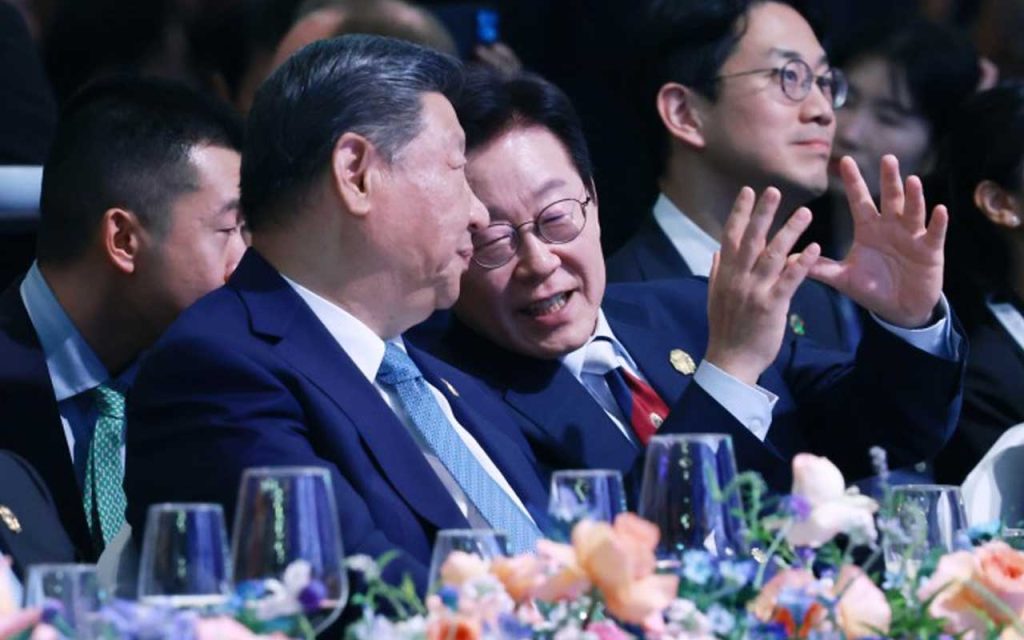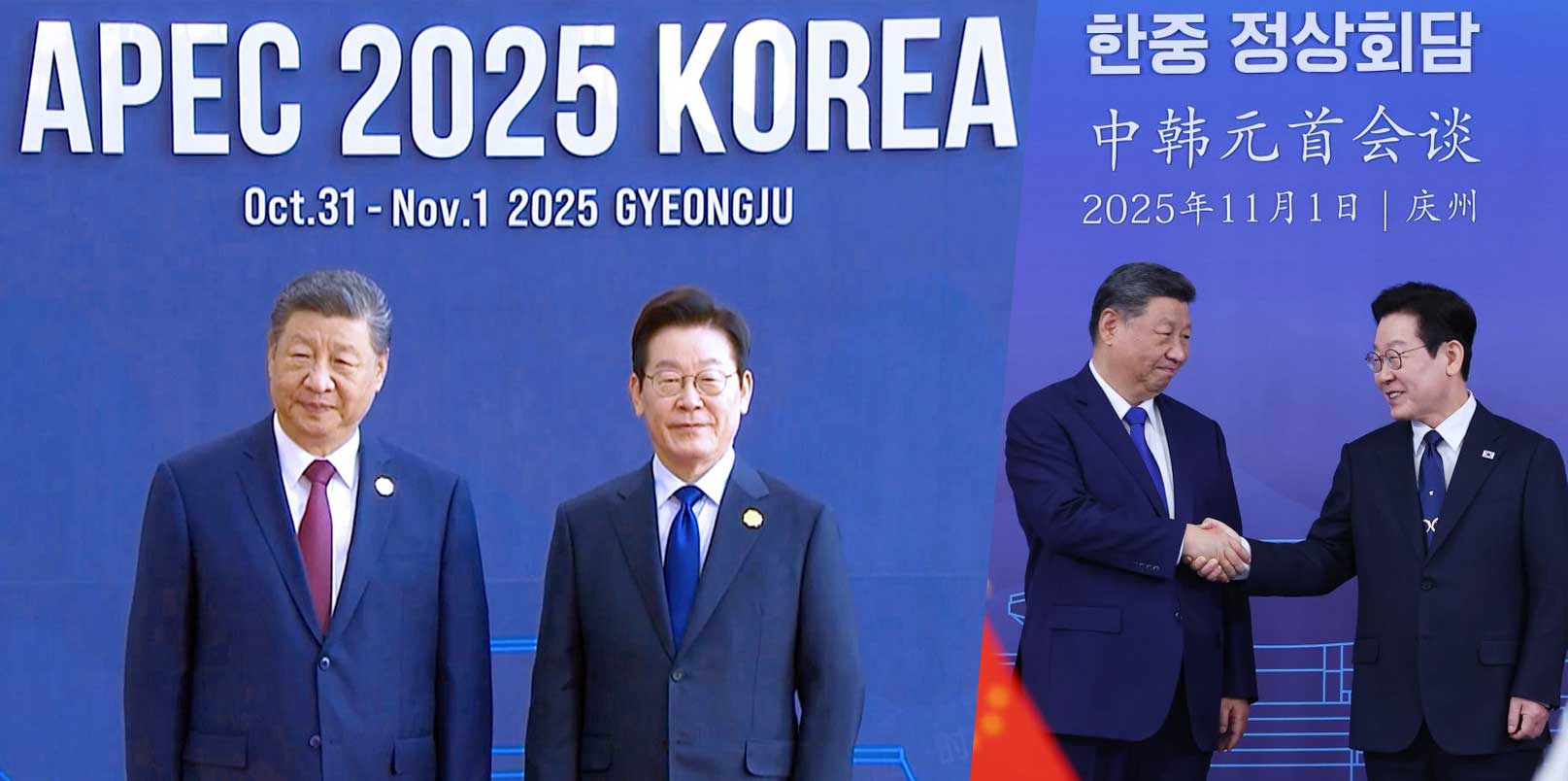As Asia’s two largest innovation economies look to reset relations, Korea and China are moving beyond diplomacy toward a shared innovation agenda. Their new startup partnership, unveiled during APEC 2025 in Gyeongju, reflects a deeper alignment between policy and technology — a signal to investors and founders that cross-border collaboration is becoming a new driver of growth in the Asia-Pacific ecosystem.
Korea and China Launch Innovation Partnership at APEC 2025
Following the previous meeting with the Crown Prince Sheikh Khaled bin Mohamed Al Nahyan of the UAE, APEC 2025 Leaders’ Summit in Gyeongju also brought together Korea’s President Lee Jae-myung and Chinese President Xi Jinping for their first bilateral summit under the Lee administration, marking the first state visit by a Chinese head of state to South Korea in 11 years.
The two leaders exchanged seven cooperation documents, including the creation of an Innovation Startup Partnership Program, designed to build a structured bridge between the two nations’ startup ecosystems.
The meeting underscored Korea and China’s intent to revitalize bilateral ties and expand cooperation across innovation, finance, trade, and future technologies. The program’s startup component is seen as one of the most concrete outcomes of the Gyeongju summit, aligning with Korea’s broader goal of positioning itself as a venture and innovation hub within the Asia-Pacific region.
APEC 2025 Korea – China Summit: Rebuilding Economic Cooperation Through Innovation
President Xi’s state visit — the first since 2014 — took place on the sidelines of APEC 2025, where China participated as special invited guest nation. The summit began with an official welcome ceremony at the Gyeongju National Museum, followed by bilateral talks held alongside the APEC Leaders’ Meeting.
A total of seven cooperation documents were exchanged, reflecting a multi-layered approach to economic and technological collaboration. Key agreements include:
- The Innovation Startup Partnership Program, focusing on joint R&D, startup ecosystem connectivity, and talent exchange.
- A won–yuan currency swap agreement, strengthening financial stability and liquidity cooperation.
- A five-year economic cooperation plan (2026–2030) providing a structured roadmap for trade and investment policy.
- Agreements in agricultural exports, service trade, law enforcement, and aging society cooperation, signaling efforts to diversify collaboration beyond traditional trade.
The startup partnership, co-signed by Korea’s Minister of Science and ICT and the Chinese Ambassador to Seoul, is designed to support cross-border investment, joint R&D, and third-market entry for innovative startups — a move reflecting both countries’ shared focus on innovation-driven growth and technology-centered economic diplomacy.
Strategic Cooperations at APEC 2025 Korea – China Summit
President Xi Jinping proposed four directions for the next phase of Korea–China relations — strengthening strategic communication, deepening economic cooperation, expanding people-to-people exchanges, and enhancing multilateral collaboration, saying:
“China and Korea are inseparable neighbors and indispensable partners. Promoting the sound and stable development of our relationship serves the fundamental interests of both nations.”
He also emphasized the importance of cooperation in artificial intelligence, green industry, biopharmaceuticals, and the silver economy, as emerging fields for bilateral collaboration.
President Lee Jae-myung called for strategic cooperation in key sectors, including public welfare, digital transformation, and AI, noting that the partnership must ensure supply chain stability and mutual prosperity.
“Korea and China are not only neighbors but inseparable partners. We will strengthen mutually beneficial cooperation, maintain stable production and supply chains, and deliver greater welfare to our people.”
He reaffirmed Korea’s support for China’s hosting of the 2026 APEC Summit in Shenzhen and emphasized the importance of people-centered innovation diplomacy in shaping Asia’s next growth cycle.
Linking Two Innovation Economies
The Innovation Startup Partnership signals the most tangible step yet toward institutionalized collaboration between Korea and China’s tech ecosystems. By establishing a formal mechanism for information sharing, joint research, and talent exchange, the initiative could redefine Asia’s cross-border innovation and investment landscape.
The partnership also strengthens Korea’s position as a regional venture capital and startup entry hub, aligning with Ministry of SMEs and Startups (MSS)’s big picture as top four global venture powerhouse as well as KOTRA’s global acceleration programs.
As for China, the APEC 2025 Korea – China partnership agreement supports a broader transition toward technology-driven economic diversification amid domestic restructuring.

Additionally, the agreement also holds implications for third-market expansion, with both sides signaling interest in jointly supporting startups entering Southeast Asia and the Middle East, where Korean software and Chinese hardware ecosystems already intersect.
Industry analysts note that the timing reflects a gradual normalization of Korea–China relations, with innovation cooperation serving as a neutral and future-oriented channel for rebuilding economic trust after several years of policy friction.
A New Phase of Tech Diplomacy in Asia
Beyond what seems to be regular a diplomatic reset, APEC 2025 Korea – China Summit agreement between Presidents Lee Jae-myung and Xi Jinping shows how technology and startup ecosystems are now central to state-level cooperation in the Asia-Pacific region.
The newly signed Innovation Startup Partnership Program offers a structured framework for cross-border R&D, co-investment, and talent mobility, supporting Korea’s long-term vision of becoming an innovation hub linking Asia’s major economies.
As both countries move forward with their five-year economic cooperation roadmap, their collaboration in AI, biotech, and green technology could potentially create new investment corridors for founders, investors, and policymakers.
And eventually, the Korea – China agreement at APEC 2025 shows that startup diplomacy is now emerging as a defining force in regional economic realignment.
– Stay Ahead in Korea’s Startup Scene –
Get real-time insights, funding updates, and policy shifts shaping Korea’s innovation ecosystem.
➡️ Follow KoreaTechDesk on LinkedIn, X (Twitter), Threads, Bluesky, Telegram, Facebook, and WhatsApp Channel.

